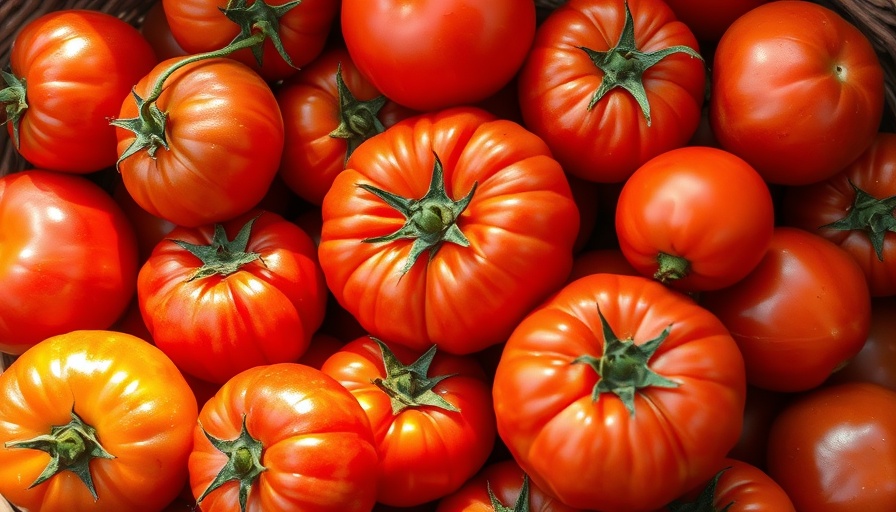
The Bitter Truth Behind Our Favorite Fruit
Tomatoes are a staple in diets around the globe, celebrated for their rich flavor and nutritional benefits. However, the examination of their production raises more pressing questions about sustainability and exploitation, especially in regions like Southern Europe. In the documentary How sustainable are tomatoes?, we uncover layers of environmental and social issues that unravel the beloved tomato's origin.
The video How sustainable are tomatoes? delves into the complex issues surrounding tomato production, prompting us to further analyze the challenges and implications for consumers.
In Almería, Spain, dubbed 'the Orchard of Europe', vast greenhouses are cloaked in plastic that somehow promises convenient agricultural yields throughout the year. Yet, this convenience comes at a hefty price: the overwhelming plastic waste and toxic agricultural practices threaten both the environment and the laborers, primarily migrants from Africa, who often work in degrading conditions without contracts or proper rights.
The Human Cost of Cheap Produce
As investigative pieces reveal, cheap tomatoes signify compromised ethical standards. Nadja, a Moroccan laborer, epitomizes the plight of many, laboring intensively in exchange for meager pay amidst deplorable living conditions. Stories like hers unveil an uncomfortable truth: the price of our year-round craving for tomatoes directly correlates to suffering and systemic exploitation in these agricultural hubs.
Environmental Footprint and Consumer Responsibility
The alarming rates of plastic pollution from tomato cultivation raise ethical questions about consumer responsibility. While the face value of buying cheap tomatoes may seem harmless, every purchase contributes to hazardous waste and hidden human costs. As global citizens, we must scrutinize labels and choose wisely, opting for sustainably sourced produce when possible.
Furthermore, innovations such as hydroponics and geothermal energy-powered greenhouses offer hope for a greener future. But who gets access to these methods? It remains essential for us to advocate for transparency and ethical practices in food production.
Concluding Thoughts: A Call for Action
The quest for sustainably sourced tomatoes isn’t merely about taste; it’s about justice, environmental stewardship, and ethics in global agriculture. As consumers, we have the power to demand change through informed choices. Let’s move towards a future where the tomato is not just a fruit, but a symbol of sustainability and humanity.
 Add Row
Add Row  Add
Add 




Write A Comment